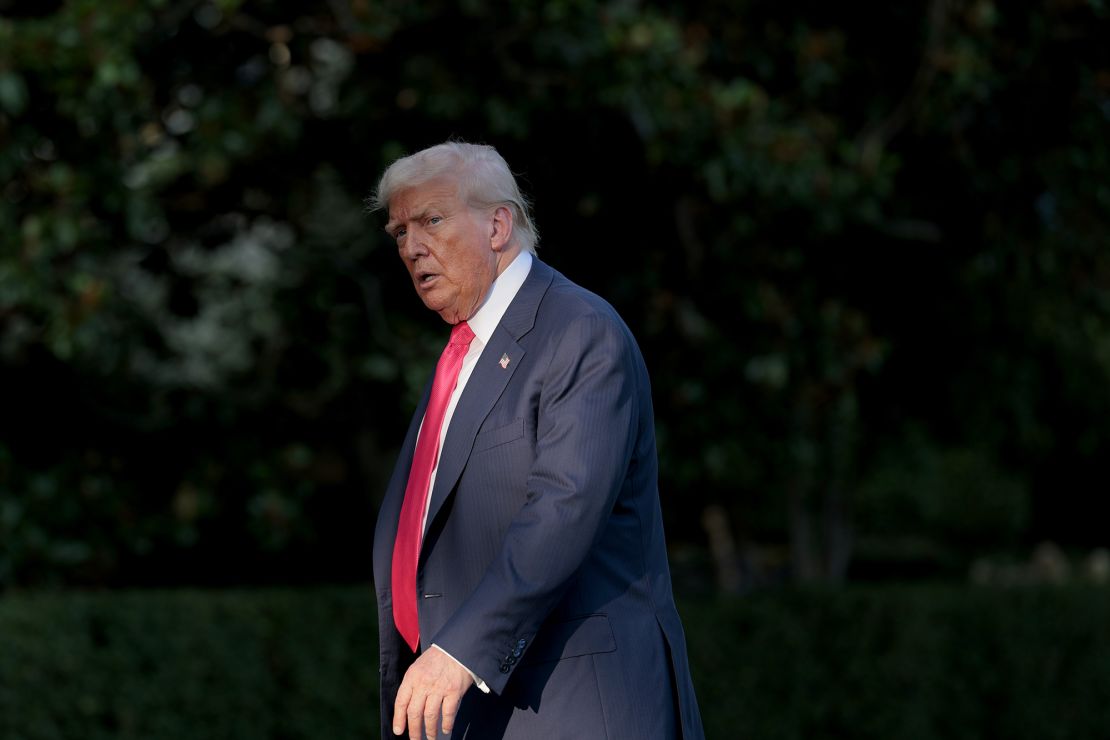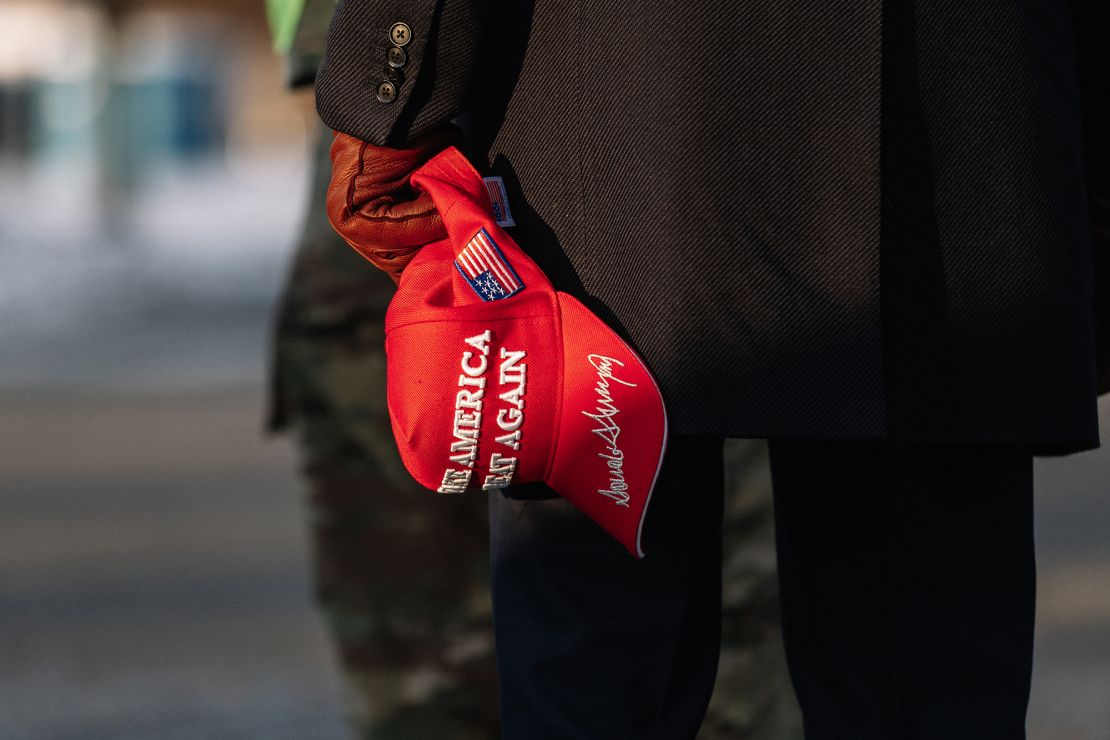CNN
—
On a Saturday afternoon in October 2020, in a small hotel conference room just outside Phoenix, Arizona, the mood was buoyant.
A gentleman wearing an unusual and elaborate headpiece scoffed and grunted my way as I entered the room. It was the height of the Covid-19 pandemic, and of the 60 or so people who gathered here, I was among the very few wearing a facemask. Some in the room didn’t believe Covid was even real.
The crowd cheered as they watched a clip of President Trump play on a television at the front of the room.
The video was from 48 hours earlier, when Trump had been asked by NBC News’ Savannah Guthrie if he would disavow QAnon.
He would not.
Trump said he knew nothing about QAnon but that “they are very much against pedophilia” and that he agreed with that sentiment. A couple of months earlier, Trump said he’d heard that QAnon followers were “people that love our country.”

His refusal to denounce the conspiracy theory was celebrated in that Arizona conference room. The crowd had gathered for QCon, a convention of QAnon followers that was taking place a couple of weeks before the 2020 presidential election.
These were among Trump’s most diehard, most online supporters. Many of them had been mired in the labyrinth of QAnon — a conspiracy theory that among other things alleges a powerful cabal of elite pedophiles controls the government — ever since Q, the anonymous persona behind the conspiracy first began posting three years earlier in 2017.
Jeffrey Epstein was a central character in the QAnon theory. Q posted dozens of times about the convicted sex offender and accused sex trafficker while pointing out his ties to Democratic Party politicians.
Already convinced that Trump was sending secret, coded QAnon messages in his speeches and public appearances (he wasn’t), the crowd at this 2020 event took his refusal to disavow the conspiracy theory as an endorsement of it.
In the years since, Trump has repeatedly posted memes that include QAnon iconography. In May, the liberal watchdog Media Matters found Trump had amplified QAnon-promoting accounts on his Truth Social page more than 1,000 times since 2022.
In the eyes of QAnon’s adherents, that was a thousand endorsements of a wild conspiracy theory in which Epstein is a central figure.
That’s why Trump’s sudden dismissal and disapproval of his base’s relentless questions about the so-called Epstein files this week has come as such a shock to many among MAGA and QAnon adherents.
Trump is known for being innately in tune with the beliefs, emotions and grievances of his base, as a savvy media manipulator and — whether you like it or not — an ingenious social media user.
Either Trump is playing dumb here and hoping he can wish the Epstein obsession away — or perhaps this is a remarkable instance of the 79-year-old president not fully grasping how profoundly he has stoked and encouraged the conspiratorial beliefs of many in his base.
Trump has tried this week to blame the mainstream media for turning the Epstein files saga into a scandal for his administration. While that’s a rather typical tactic for him, it also glosses over the power of the MAGA media universe that has built itself around him.
Talk of the Epstein files reignited on Tuesday not because of reporting from CNN or The New York Times, but because of an interview House Speaker Mike Johnson gave to Benny Johnson, a MAGA influencer.
The online MAGA sphere has become so large and so lucrative in large part because so many of its followers are so fervent about the tangled web of conspiracy theories they are sold on a daily basis. Many of these people are hyper-online and, in their most extreme, can manifest as QAnon adherents.
While the general attention of MAGA media shifts from one outrage to the next — much like other forms of media — there are a few storylines that remain consistent and eternally present.
Tune into MAGA media on any given day and you should expect to hear about the 2020 election being stolen or about Epstein and something along the lines of there being an evil cabal of liberal elites covering up a global child sex-trafficking operation.
Trump has relied on MAGA’s obsession with the former to demonize his political opponents and fuel his electoral success. Now he has to deal with the latter.
It’s easy to underestimate the power of online conspiracy theories and the emotions they can conjure — and it seems Trump himself might be doing so now.
Back in that Arizona conference room in October 2020, QAnon followers repeated Trump’s words that the only way he could lose the election was if it was stolen. A few months later, the US Capitol was attacked.
A man named Jacob Chansley would become one of the most recognizable figures from that day because of what he was wearing, especially his unusual headpiece.

He was the “QAnon Shaman” and it was he who had grunted at me for wearing a facemask in that Arizona conference room. Today, after being pardoned by Trump, he is an active social-media user posting regularly about — you guessed it — Jeffrey Epstein and Democrat-run sex abuse rings.
On their face, conspiracy theories can seem stupid, like vapid online chatter. We are often tempted to laugh at them and assume they will go away if they are ignored.
But they don’t go away and neither do the people who passionately believe in them.
President Trump may be learning that the hard way.

